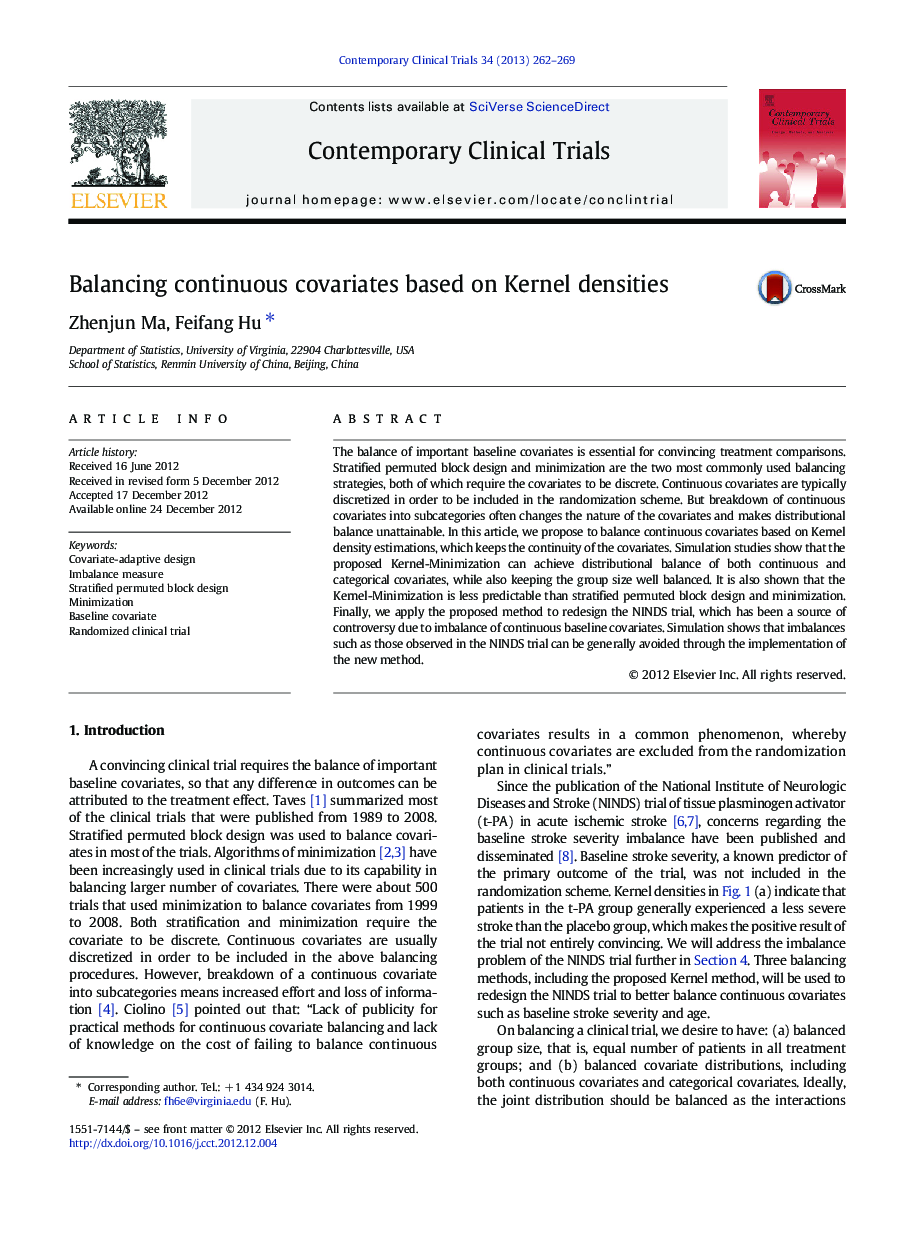| Article ID | Journal | Published Year | Pages | File Type |
|---|---|---|---|---|
| 3462687 | Contemporary Clinical Trials | 2013 | 8 Pages |
The balance of important baseline covariates is essential for convincing treatment comparisons. Stratified permuted block design and minimization are the two most commonly used balancing strategies, both of which require the covariates to be discrete. Continuous covariates are typically discretized in order to be included in the randomization scheme. But breakdown of continuous covariates into subcategories often changes the nature of the covariates and makes distributional balance unattainable. In this article, we propose to balance continuous covariates based on Kernel density estimations, which keeps the continuity of the covariates. Simulation studies show that the proposed Kernel-Minimization can achieve distributional balance of both continuous and categorical covariates, while also keeping the group size well balanced. It is also shown that the Kernel-Minimization is less predictable than stratified permuted block design and minimization. Finally, we apply the proposed method to redesign the NINDS trial, which has been a source of controversy due to imbalance of continuous baseline covariates. Simulation shows that imbalances such as those observed in the NINDS trial can be generally avoided through the implementation of the new method.
